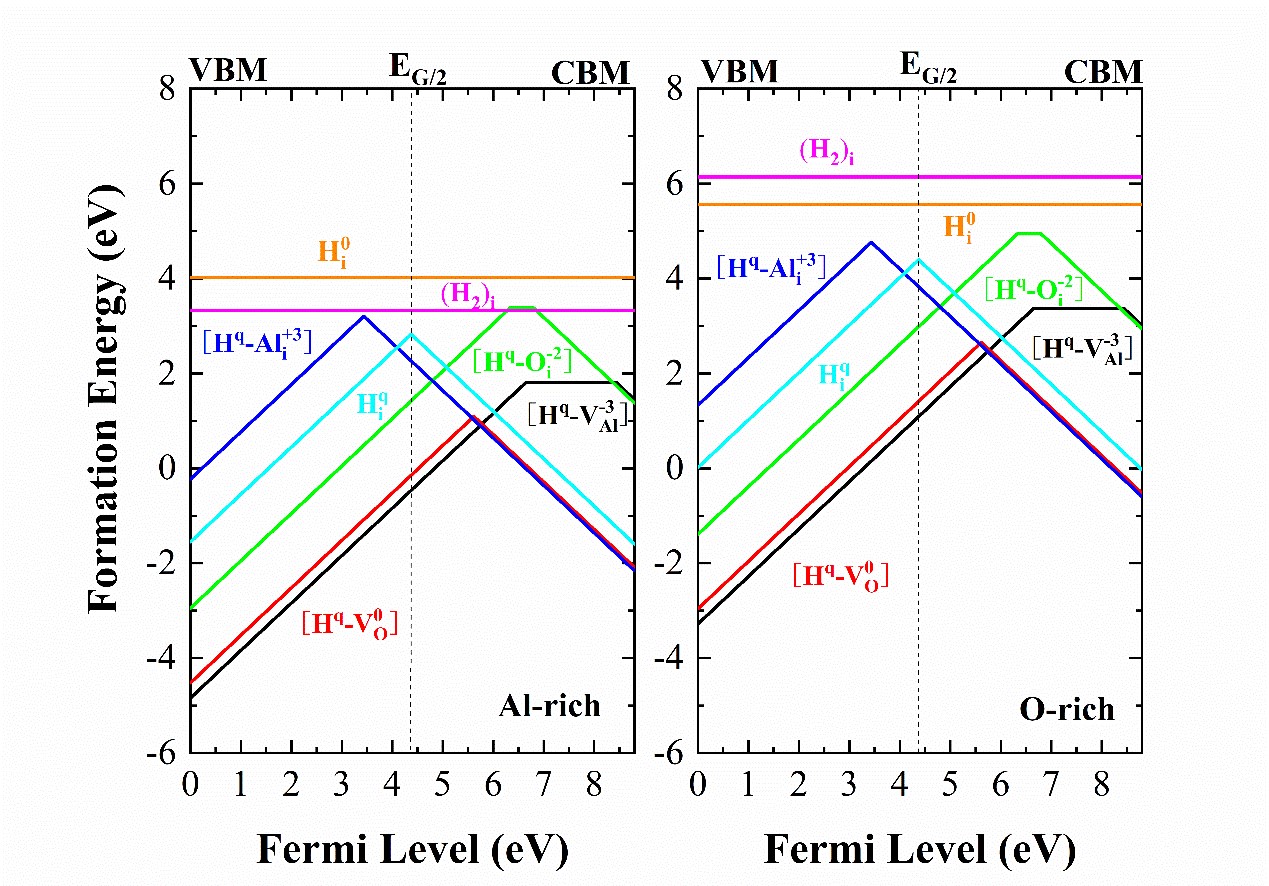
Recently, researchers led by Prof. Hai-Shan Zhou from the Institute of Plasma Physics (ASIPP), Hefei Institutes of Physical Science (HFIPS) reported their new findings about the influence of irradiation effects on hydrogen permeation through α-Al2O3 tritium permeation barrier (TPB).
Tritium self-sufficiency is one of the most important issues in the development of nuclear fusion power. It is also one of the top priorities of the Chinese Fusion Engineering Test Reactor (CFETR).
In order to reduce the permeation of tritium as much as possible, a thin coating layer adhered to the outer surface or inner wall of the structural materials in the blanket and auxiliary tritium handling systems, named a tritium permeation barrier (TPB), is suggested. And α-Al2O3, owing to its good thermal stability, electrical insulation radiation stability and high permeation reduction factor (PRF), is considered to be the most promising TPB material for fusion reactors.
However, many irradiation defects can be produced through the neutrons collision cascade in fusion reactor, which have serious impacts on the effective PRF of α-Al2O3.
After exploring the influence of irradiation-induced point defects on the dissolution and diffusion properties of hydrogen (H) in α-Al2O3, the team found that the isolated defects can trap multiple H atoms to form H-defect complexes and impede the diffusion process of H, resulting in a higher PRF of α-Al2O3 TPB. Besides, the low migration barrier of OiH-, leading to a higher diffusivity, was considered a possible underlying reason for the low permeation efficiency of α-Al2O3 TPBs in irradiation environments.
They also suggested that, as for H permeation prevention, the irradiated α-Al2O3 TPB is more effective in a H2O environment than in a H2 environment.
Their results can help researchers to understand the transport mechanism of H in irradiated α-Al2O3, and provide a reasonable theoretical explanation for experimental results of H permeation in α-Al2O3 under irradiation environments in recent years.
The research was supported by the National Natural Science Foundation of China.
Link to the paper: Influence of irradiation-induced point defects on the dissolution and diffusion properties of hydrogen in α-Al2O3: a first-principles study

Formation energies of H-defect complexes in irradiated α-Al2O3 as a function of the Fermi level in Al-rich (left) and O-rich (right) growth environments. (Image by PAN Xindong)
Contact:
ZHAO Weiwei
Hefei Institutes of Physical Science (http://english.hf.cas.cn/)
Email: annyzhao@ipp.ac.cn